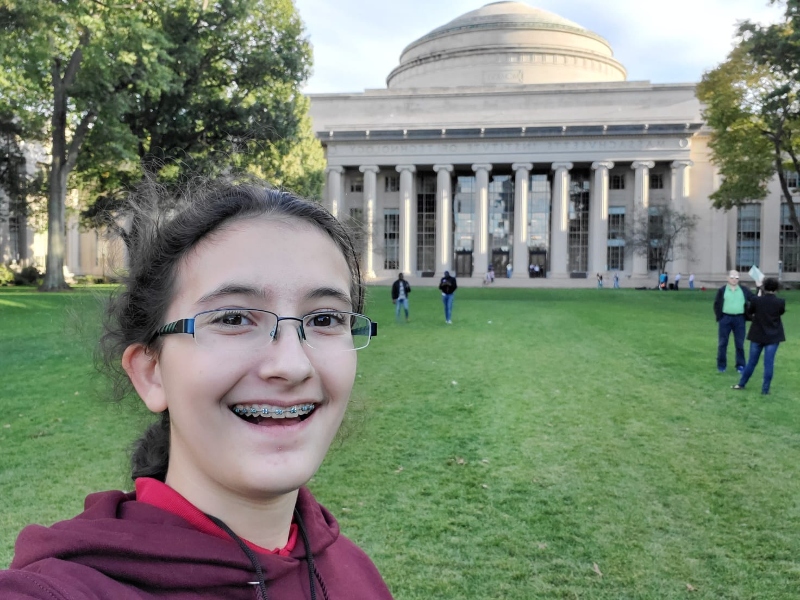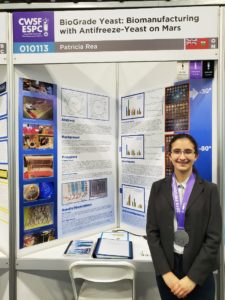“I’ve always been a curious person:”
Patricia Rea, a grade nine student at Markham District High School, loves yeast. Or, at least, she loves what yeast can do — it can be genetically engineered to produce plastic, food and spider silk, which can be used to create clothing.
That could be very important in the future, as humans look towards colonizing other planets like Mars. Yeast is light and grows fast, so it’s easy to transport on long interstellar flights where space is at a premium. The only trouble? Mars is freezing: temperatures can dip to as low as -153 degrees Celsius — too cold for yeast to survive if a colony’s environmental controls were to fail.
That’s where Patricia’s work comes in. She’s working on genetically engineering yeast that incorporates custom-designed antifreeze proteins, which will help it withstand Mars’s harsh temperatures. In order to do the kind of intensive research that’s needed for her work, Patricia set up a lab in her basement, where she works on transforming yeast cells. We asked her about her work.

What inspired you to follow this line of research?
I’ve always been a curious person. Before I knew science was a thing that existed, I was very happy learning about things — not in the traditional sense, but figuring stuff out for myself. I was really excited about getting to do my first science fair.
I’ve always loved astrobiology as well. I watched this YouTube video about genetic engineering, and I got an idea for a project in my head. I decided to do an experiment where I genetically engineered yeast with green fluorescent protein, then put it in different temperature zones in my house to see if the yeast died, which I measured by whether it stopped glowing. It was kind of a crude experiment, but it really got me started on this work.
Tell me a little about your mentors.
I met my main mentor, Justin Pahara, when he was writing an introductory book on genetic engineering and needed a junior editor. My dad had been looking for summer programs for me, but there are no in-depth summer programs in biotech because it’s an emerging field — and then he connected me with Dr. Pahara, who taught me how to use the equipment in my lab, and has helped me as I continue my research.
One of the reasons mentors are important is that they can teach you the ropes. With robotics and coding, it’s a little easier to teach yourself, but with biotech, it’s more complicated. It’s good to have someone guide you and teach you how things work. Plus, they can connect you with other people who can help you.

Last October, you participated in the Bio Summit at MIT. What was that like?
It was very fun. I was on a panel about education and biotech, and I had a fun time doing that. I also got to talk to a bunch of cool people about my research. They were awesome. It was great to be able to connect with the community because there aren’t many high schoolers in biotech, or doing biotech outside of a lab – so I don’t really have a community to connect with here.
What advice do you have for people your age who might want to pursue science outside of school?
I definitely suggest participating in a science fair. That opens up a lot of doors. Science fairs are often seen as nothing but baking soda volcanoes, but that isn’t what science fair is. It’s a lot more competitive than you think. If you have the passion to do something, and if you have the motivation – even when you have to wake up at like five in the morning to test your samples, and you’re really hating it – it doesn’t matter how “smart” you are.

If you have that passion, you can do it and you can learn it and you are capable of doing that research. If you’re interested in it, just start. There are lots of good resources, like Youth Science Canada and Science Buddies. The Canada-Wide Science Fair is doing an online fair this year, and that would be good to check out.
But it’s not just about science fairs and competitions – it’s about connecting with people and the community and their research. Don’t be afraid to go to conferences or try to interact with the community or go to community labs, because you can help other people who are trying to get into it, and meet up with other people who are at the same level that you are.








